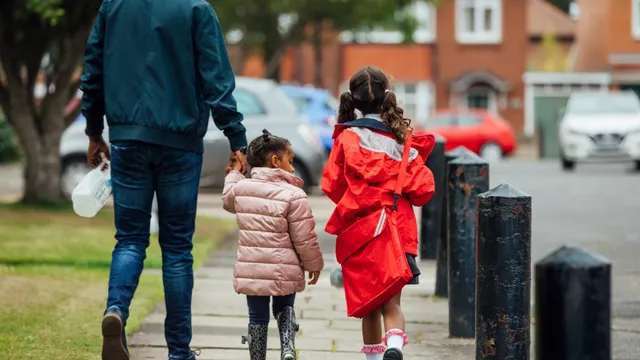
Labour rebels demand increase of two-child benefit cap
2025-02-21 18:19- Labour MPs are advocating for the government to explore raising the two-child benefit cap, aiming to address issues of child poverty.
- The proposal could create tensions among party members as left-wing Labour MPs resist the leadership's current stance on benefits.
- The upcoming negotiations with the EU may influence the outcome of these domestic policies.
Express your sentiment!
Insights
In recent weeks, Labour MPs representing various factions have intensified their efforts to challenge the two-child benefit cap established under the Conservative government in the UK. The cap, which restricts universal credit or child tax credit to a family's first two children, has faced criticism for exacerbating child poverty. High-profile figures, including Bridget Phillipson, the education secretary, and Liz Kendall, the work and pensions secretary, are now involved in drafting a child poverty action plan, potentially advocating for an increase in the cap to three children. This movement coincides with ongoing discussions regarding the European Union's youth mobility scheme, where Keir Starmer's government has been approached about allowing greater mobility for young people between the UK and EU countries. While Starmer has previously dismissed the idea of returning to free movement as a betrayal of Brexit, leaked plans indicate that the UK might be considering a limited scheme to permit young EU workers and students to come to Britain for up to two years. The arrangement aims to cap numbers significantly at about 70,000 annually with restrictions on access to state benefits. As talks are expected to accelerate ahead of a UK-EU leaders' summit in May, both parties recognize the need to reset their post-Brexit relationship. The EU's approach notably contrasts with the UK’s potential plan, pushing for more relaxed conditions without fixed caps. This climate of negotiations fosters caution on both sides, and there is a collective hope for a constructive outcome. Ultimately, the outcomes of these proposals regarding child benefits and youth mobility will have significant implications for low-income families in the UK, as well as for the political landscape surrounding Brexit negotiations. Labour's ability to unify its factions in pursuit of these objectives will also serve as a critical test for Starmer's leadership and the party's influence over future welfare policies.
Contexts
The Labour Party has long recognized the issue of child poverty as a critical social concern affecting millions of families across the UK. Child poverty not only diminishes the quality of life for affected children but also has far-reaching consequences on society as a whole. It undermines educational outcomes, mental and physical health, and future employment prospects. Despite various initiatives and policies implemented over the years, child poverty rates have remained stubbornly high, necessitating a comprehensive action plan that addresses the root causes and provides sustainable solutions to eradicate child poverty. The Labour Party's Child Poverty Action Plan sets out a strategic framework aimed at reducing child poverty levels significantly by targeting economic, social, and educational inequalities. Central to this action plan is the commitment to increasing household incomes, primarily through enhancements to the welfare system and increasing support for low-income families. This includes proposing a rise in the minimum wage and expanding access to affordable housing, as stable living conditions play a crucial role in alleviating the financial strain on families. Additionally, the plan emphasizes the importance of early intervention programs that support families with children in their formative years, ensuring that all children have access to quality education and childcare, vital components for breaking the cycle of poverty. Furthermore, the action plan highlights the importance of a multi-agency approach, engaging various stakeholders such as local governments, schools, and community organizations, to create a cohesive support network for families in need. This collaboration is essential for the effective implementation of poverty alleviation strategies and for ensuring that services are tailored to the specific needs of local communities. Monitoring and evaluation mechanisms will be put in place to assess the effectiveness of intervention strategies and make necessary adjustments, ensuring that resources are utilized efficiently and that progress towards reducing child poverty is measured and reported transparently. In conclusion, the Labour Party's Child Poverty Action Plan is an ambitious and necessary response to a persistent social issue that demands urgent action. By tackling the underlying economic disparities, enhancing support for vulnerable families, and fostering collaborative networks, the Labour Party aims to create a future where all children, regardless of their background, can grow up free from the burdens of poverty. The successful implementation of this plan hinges on political will and the collective efforts of society, as eradicating child poverty is not only a moral imperative but also a crucial investment in the nation's future.